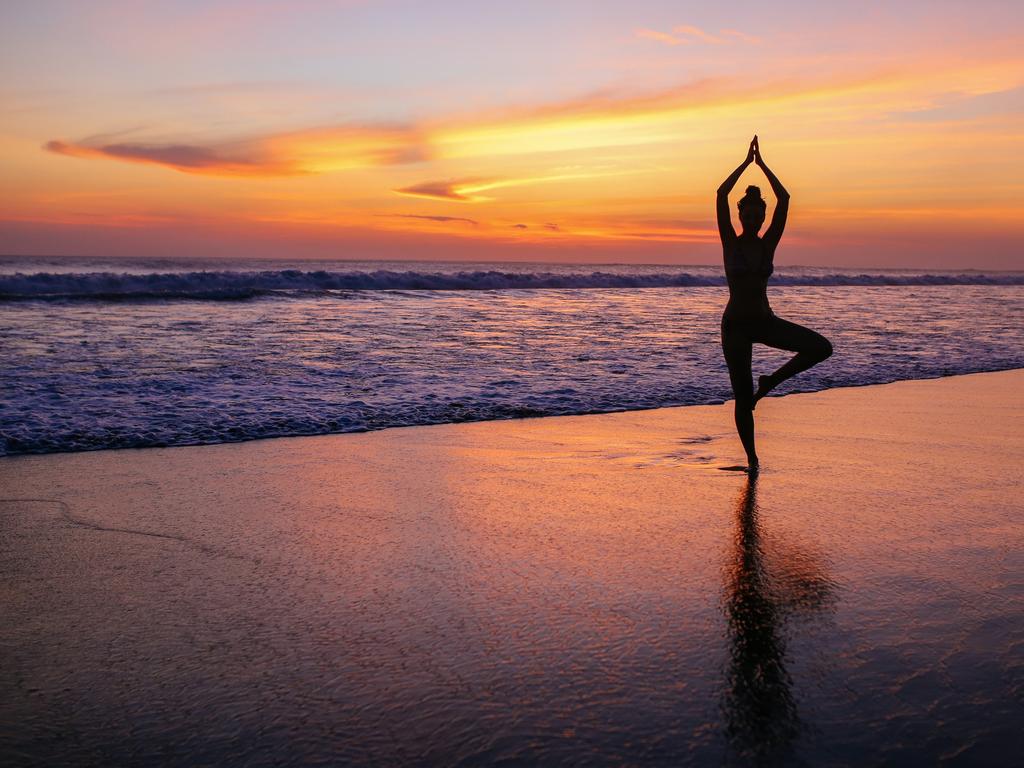Step it up: How to be a weekend warrior
New research has found that it’s OK to exercise only outside the working week. But what are the pros and cons of this approach?

Are you someone who lacks the time (or the inclination) to squeeze in gym sessions during the working week, compressing all your physical activity into a couple of runs, cycles or a football match at the weekend? While regular gymgoers may chide that it’s not enough, researchers slapped a seal of approval on the weekend-warrior approach to exercise by claiming last week that weighting your workouts in this way will bring many of the same health benefits.
Using data on 350,978 adults in the US who were mostly in their forties when the research started, the international team reported in the journal JAMA Internal Medicine that whether they packed their activity into two days or spread it more evenly through the week over three days or more it lessened their risk of dying prematurely.
Dagfinn Aune, a researcher at Imperial College London’s School of Public Health and one of the paper’s authors, says that while some of the participants had more active jobs than others, the findings were based “purely on a person’s leisure-time physical activity”. And provided they met the weekly guidelines of 150 minutes of moderate activity – the type that leaves you breathing harder but able to chat – or 75 minutes of vigorous exercise that leaves you puffing, panting and red-faced, as recommended by UK public health chiefs, it didn’t matter how or when they did it as long as they got it done. Compared with the inactive, the weekend warriors’ risk of dying from specific causes including heart disease and cancer also dropped during the 18-year study.

“We showed that weekend warriors can get comparable health benefits to regularly active people when a similar amount of overall activity is done,” says Donghoon Lee, a research associate at the Harvard TH Chan School of Public Health and another of the paper’s authors. “Ideally it would be good to spread exercise over the week, but in the real world that may not be possible and our finding has important implications for people who don’t find this convenient.”
These results appear to fly in the face of recommendations to be active every day, seemingly relieving some of the pressure to count daily steps and squeeze in a gym class before work. But there are some caveats. What the latest research doesn’t address is fitness improvements, including cardiovascular and strength gains, or whether weekend warriors are missing out on specific health gains compared with those exercising more frequently.
“There are definitely health advantages to spreading physical activity across the whole week and, ideally, being physically active every day,” says Emmanuel Stamatakis, a professor of physical activity and population health at the University of Sydney, who worked with researchers at Loughborough University and the University of Leicester to explore the weekend-warrior phenomenon for a previous paper in the Journal of the American Medical Association. “For example, blood sugar regulation and the prevention of type 2 diabetes is improved through more regular daily physical activity, so while exercise on one or two days is better than none, if someone can manage to increase that with more sessions done on different days the gains are greater.”
Stamatakis points out that, in terms of the research, the name “weekend warrior” is an imperfect definition because “no study until now has really considered the weekly timing of these one to two weekly sessions. We assume people are doing most of their activity over the weekends, but this is only an assumption.”
And while working out on just two days in a week may not be the optimal way to exercise, he says that nobody should feel guilty about loading their activity into a weekend. “In a way, there is no such thing as an ‘ideal’ or ‘perfect’ exercise pattern. Whatever physical activity you can fit comfortably into your weekly routine and continue doing long-term, month after month, year after year, is what will bring the best outcome.”
So if you cram your exercise into Saturdays and Sundays, here’s how to be a weekend warrior:
I don’t exercise much at all. Can I become a weekend warrior?
If you are someone who does nothing in the way of regular exercise, shifting up a few gears to increase activity at the weekend will bring dramatic improvements in health.
“Based on other evidence as well as our own, it seems that the biggest increment in health benefits is observed when going from inactive to a moderate amount of activity,” Aune says. “We are not trying to discourage people from being active outside of the weekends or being active more than twice per week, quite the contrary, but if you exercise only at weekends it is better than no exercise at all.”
However, he says that the goal should always be to add more activity. “If someone is very unfit and chronically inactive – like most adults in the UK, Australia and US – they will need to start from a lower intensity and amount of exercise during the first weeks or months of a weekend-warrior approach,” Aune says. “Then as their fitness improves they will be able to increase intensity and duration, and hopefully fit three or four sessions in the same week.”
Is going for a long walk at the weekend enough?
Aune says that walking for even 30 minutes a day on Saturdays and Sundays is a big step up over doing nothing. “But our findings showed that higher-intensity or longer-duration activity was associated with additional health benefits compared with low-level and short exercise sessions,” he says. Weekend walks of 90-150 minutes should be the ultimate aim if this is your main form of exercise all week. There are other ways of doing it if you don’t fancy a hike.
“We do need to remind people that they do not have to start a structured exercise program to reap the benefits of an active lifestyle,” Stamatakis says. “Stepping up your walking pace to at least 130 steps per minute or stair-climbing is a good way to increase the intensity to achieve ‘vigorous intermittent lifestyle physical activity’, or what researchers call VILPA for short.”
Is it harder to get fit as a weekend warrior?
If you do little in between, it will be harder to make fitness progress. Jim McKenna, professor of physical activity and health at Leeds Beckett University, says there can be a “de-training effect”, with endurance capacity dropping after as little as five days without aerobic exercise such as running, cycling and swimming. Muscle deconditioning can also occur within a short time period, he says, so to some extent you will be maintaining fitness but not improving it significantly if you just stick to weekend workouts. “If you are training for something or want to get fitter, then a regular and more structured training program is needed,” McKenna says. “You can load your training to the weekends if that’s what works for you, but you will need to add progressively more intensity and sessions to get fitter and stronger.”
Can you pack all your endurance workouts into one weekend?
If you are someone who waits until the weekend to do your marathon-training miles or ultra-long bike rides, will it work or are you in danger of doing more harm than good? It depends on many parameters, including your fitness level, how strenuous and long the exercise session is, and whether conditions are placing extra strain on your body.
“In hot, humid or polluted environments the physiological load and need for recovery may be higher,” Stamatakis says. “In general, our bodies need recovery after large and sustained physical effort, more so from our forties onwards, so it’s a good idea for any weekend warrior to allow a full day for some light active recovery and restful sleep.”
Offsetting fatigue with adequate recovery is crucial to maintain good health. “Your body needs as much as 48 hours to recover from an intense, long-duration exercise session and recovery time is more important as you get older,” McKenna says. “Fatigue affects focus and technique, which, coupled with a lack of muscle recovery, lays you open to illness or injury.”

Overdo it and you are asking for injury
Pick up the pace and intensity of your weekend exercise before your body is trained and prepared for the onslaught and you could be raising your risk of injury. “If you do high-intensity exercise for a long duration above the recommended level on one day, it is safer to reduce the intensity and duration of exercise the next day to avoid sports injuries,” Lee says. “For people with medical conditions, it is recommended to discuss appropriate exercise programs with medical doctors.”
Of 351 participants in watersports, hiking, skateboarding, hockey and climbing who participated in one study, significantly more of them sustained injuries at weekends when they were able to devote more time to their activity. Rates of falls and collisions were higher as were injuries to the head, spine and limbs, leading the Canadian researchers to issue a warning that “all weekend warriors should be aware of the risk of severe injury associated with intense and sustained weekend recreation”.
The Times







To join the conversation, please log in. Don't have an account? Register
Join the conversation, you are commenting as Logout